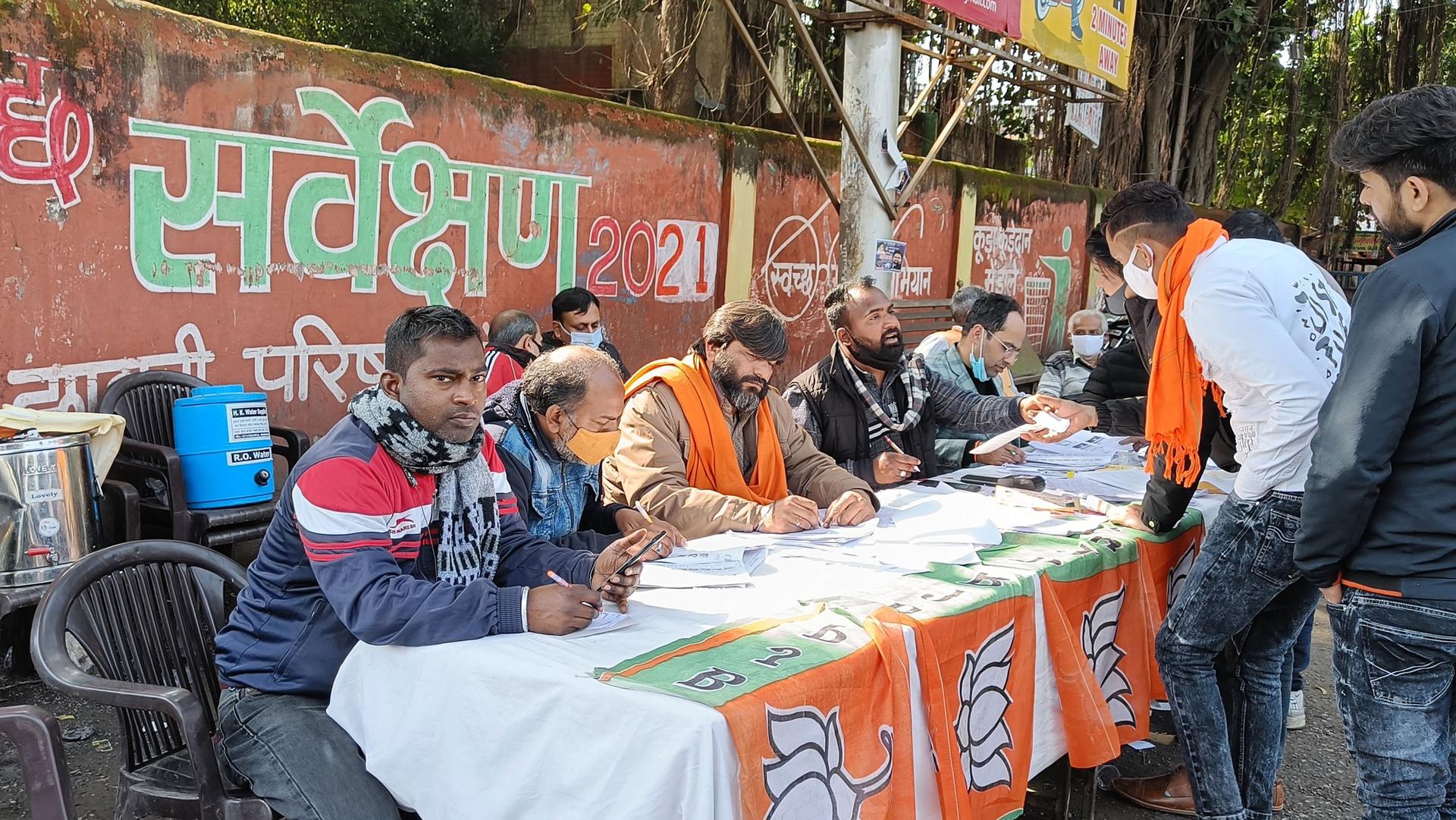Nitu Malik’s life has been a bit hectic lately. The 51-year-old former teacher has been canvassing ahead of the polls that began last week in her state of Uttar Pradesh in northern India.
Prime Minister Narendra Modi’s Bharatiya Janata Party, or BJP — known for its strong Hindu nationalist policies — is fighting to keep the state where it has been in power since 2017.
With more than 150 million voters, Uttar Pradesh is the largest state in India and a barometer for national politics. Beyond the numbers, Uttar Pradesh also has a deep symbolic significance.
“[Uttar Pradesh] is a state where, historically, every ideological battle the BJP has been fighting takes place in more exacerbated forms.”
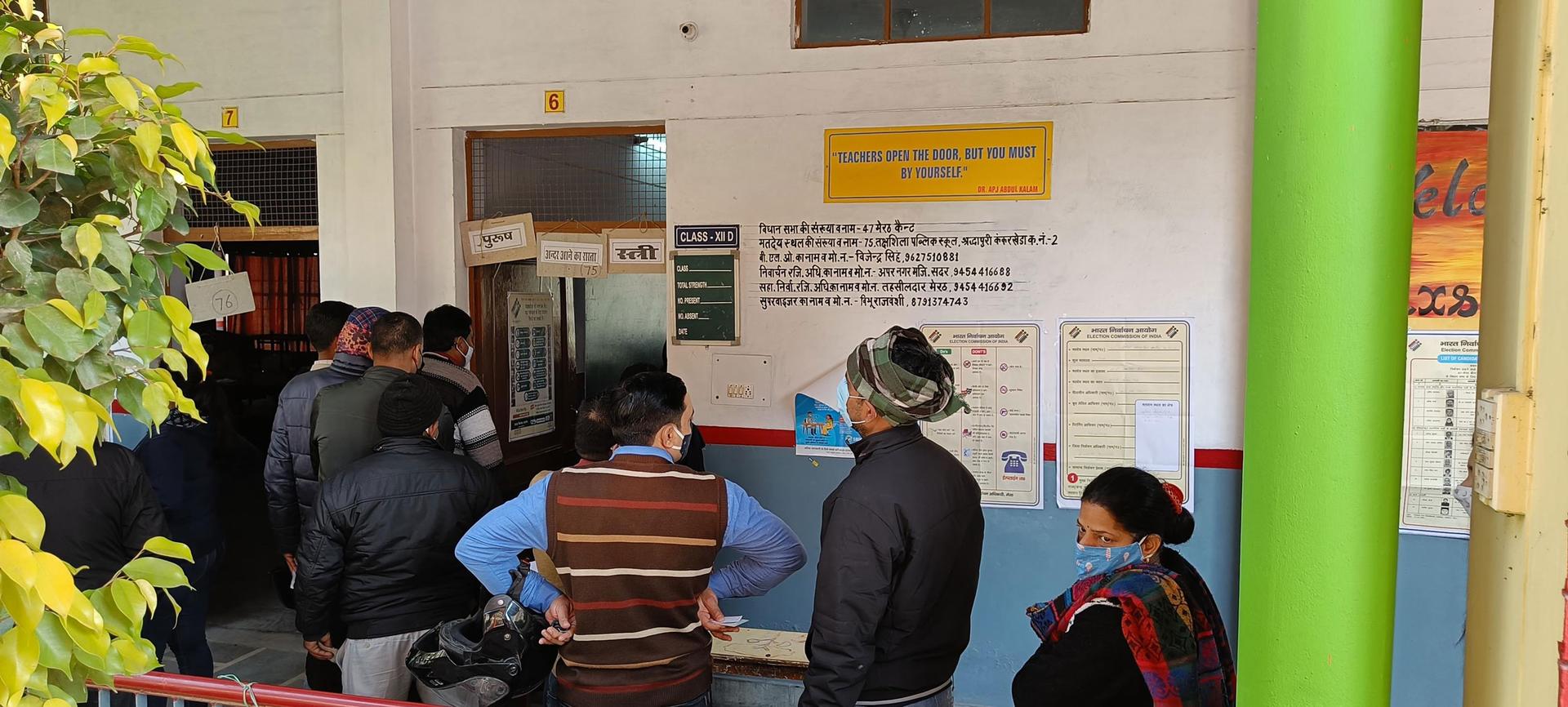
“It is a state where, historically, every ideological battle the BJP has been fighting takes place in more exacerbated forms,” said Gilles Verniers, a political scientist at Ashoka University in New Delhi.
Malik, the former teacher, has been going door-to-door in her hometown of Meerut, a religiously mixed city of Hindus and Muslims about 60 miles outside of New Delhi, urging people to vote for the BJP.
The BJP enjoys huge support among Hindus like Malik, who make up about 80% of India’s population. She said that by steering the country toward Hinduism, the BJP is forging a central identity for Indians.
“The base of India is Hinduism. … Now I think they are going back again to those roots and I think it’s a good thing.”
“The base of India is Hinduism,” Malik said. “Now I think they are going back again to those roots and I think it’s a good thing.”
Her friend Archana Sirohi also thinks having a central national identity is important. For centuries, India was ruled by foreigners — first the Mughals, then the British. So, for a long time, Indians didn’t have their own identity, Sirohi said.
“Now, the BJP is helping Indians rediscover their Hindu roots and that matters to us.”
Related: WhatsApp sues Indian government over unconstitutional internet laws, privacy encroachment
A test for Hindu nationalism
This idea of India as a Hindu nation is what’s being tested in this election, Verniers said.
“Uttar Pradesh can be seen as a prefiguration of what a more complete Hindu majoritarian state would look like at the national level,” he said.
It’s also a test for Uttar Pradesh’s chief minister, Yogi Adityanath, a Hindu priest who embodies the merger of religion and politics, Verniers said.
Adityanath is a polarizing figure known for his incendiary speeches. His government was the first in the country to pass a law against so-called “love jihad,” — the conspiratorial theory that Muslim men in India intentionally seek out Hindu women to marry in order to force them to convert to Islam.
Related: Protesters in India call for justice for Dalit women who are victims of sexual violence
Under Adityanath, construction of a grand Hindu temple has begun at a controversial site in the northern town of Ayodha, where a Hindu mob tore down a mosque in 1992. His government has also renamed several places in the state — erasing any ties to Islam.
“Should the BJP score a massive victory, they will feel validated and incentivized to push India further into that direction,” Verniers said.
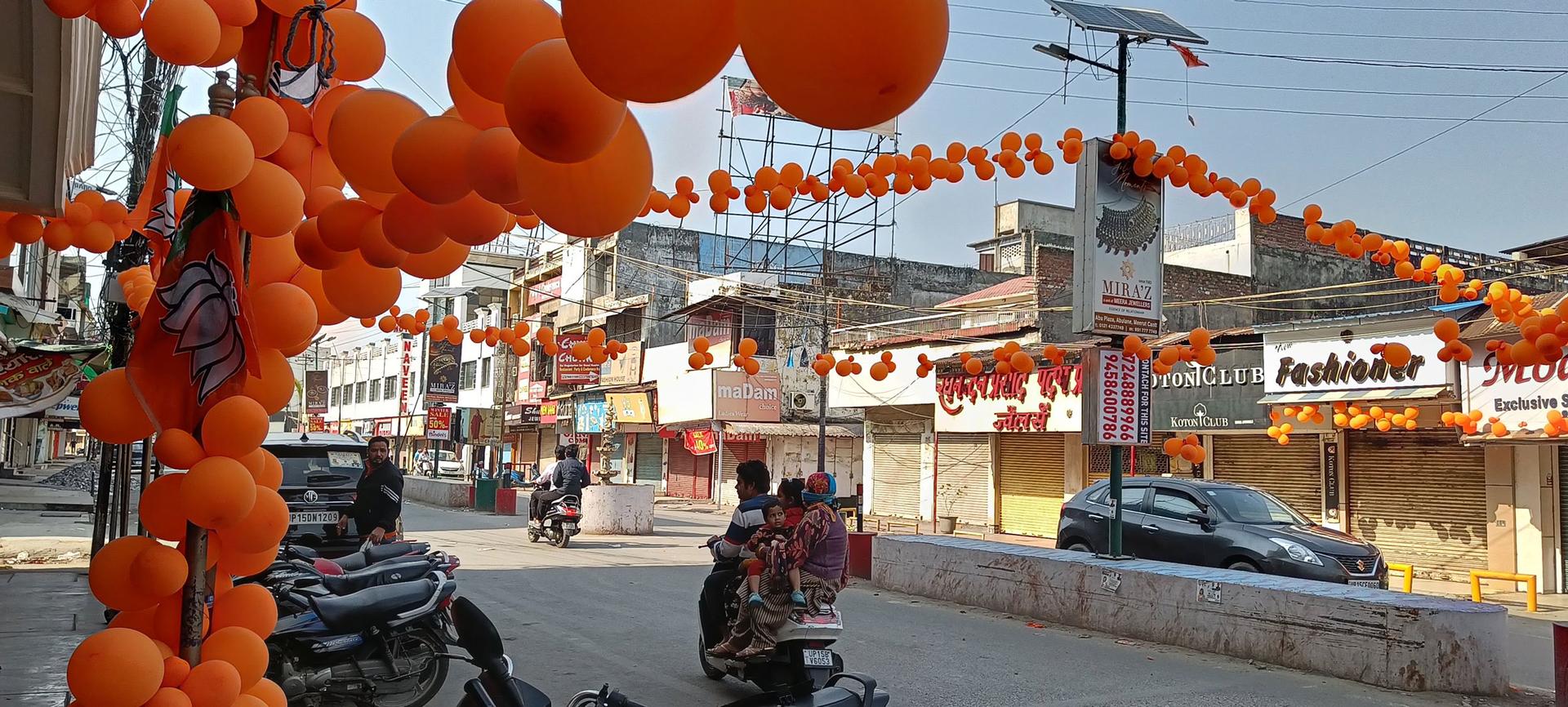
With more resources than any other party and a fragmented opposition, the BJP’s odds are quite favorable, Verniers said. A big win would boost the party as it looks ahead to the next nationwide general election in two years. Verniers said a clean sweep would also put Adityanath closer to becoming Modi’s successor and a potential future prime minister.
While religion is playing a huge role in this election, it isn’t the only issue on the ballot.
Tough on crime
Monika Tewatia’s large dining table has been strewn with papers and voter cards over the last few weeks. She lives in an affluent Meerut suburb, and she’s been helping neighbors gather their paperwork in time for polls.
Tewatia said she’s impressed by the highways and airports that the BJP is building in Uttar Pradesh. She also said that crime here has gone down in recent years, since the Samajwadi Party stepped down and the BJP took power in 2017.
“In Meerut itself, there was a big mafia, stealing cars, doing all sorts of nonsense — chain snatching, robbery, murders. Everything has stopped. Now things are changing.”
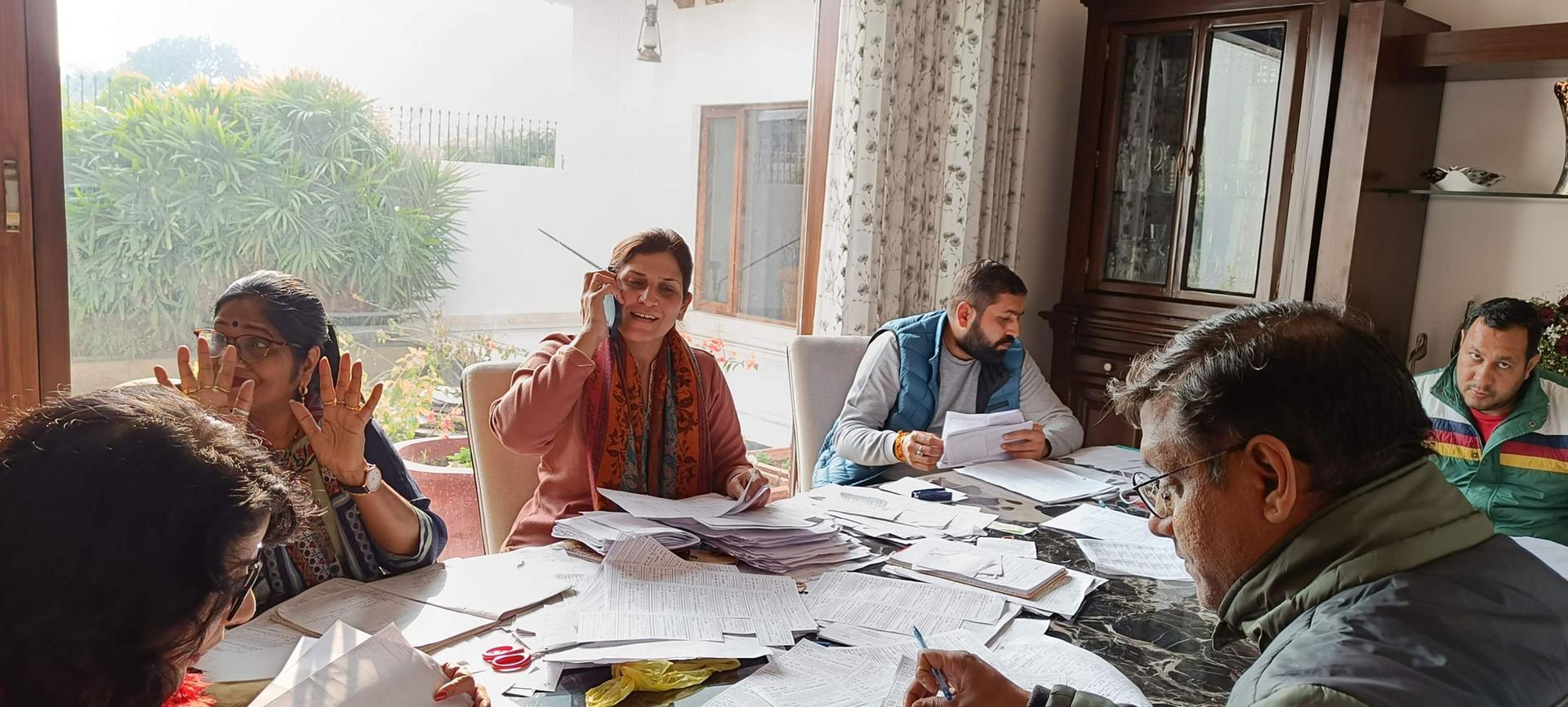
“In Meerut itself, there was a big mafia, stealing cars, doing all sorts of nonsense — chain snatching, robbery, murders. Everything has stopped. Now things are changing.”
Soon after he became chief minister in 2017, Adityanath famously said that criminals will be “knocked down.” Since then, police in Uttar Pradesh say they have shot at more than 3,000 alleged criminals — sometimes causing fatalities.
Human rights groups, including experts from the United Nations, have raised concerns about these incidents in which police typically fire at someone while arresting them and then cite self-defense. A disproportionate number of those killed this way are Muslims.
Related: Indian activists hope elderly priest’s death marks a turning point for human rights in India
A community living in fear
In a Muslim enclave in Meerut, trash lines the unpaved streets. Rickshaws and scooters swerve dangerously to avoid the many potholes. Few cars dare to come here.
The infrastructure and development that the BJP boasts about has not reached this neighborhood, said community activist Salman Siddiqui.
He rattled off a list of problems — delays in getting voter cards and ration cards, lack of public health facilities and allegations of discrimination against Muslims.
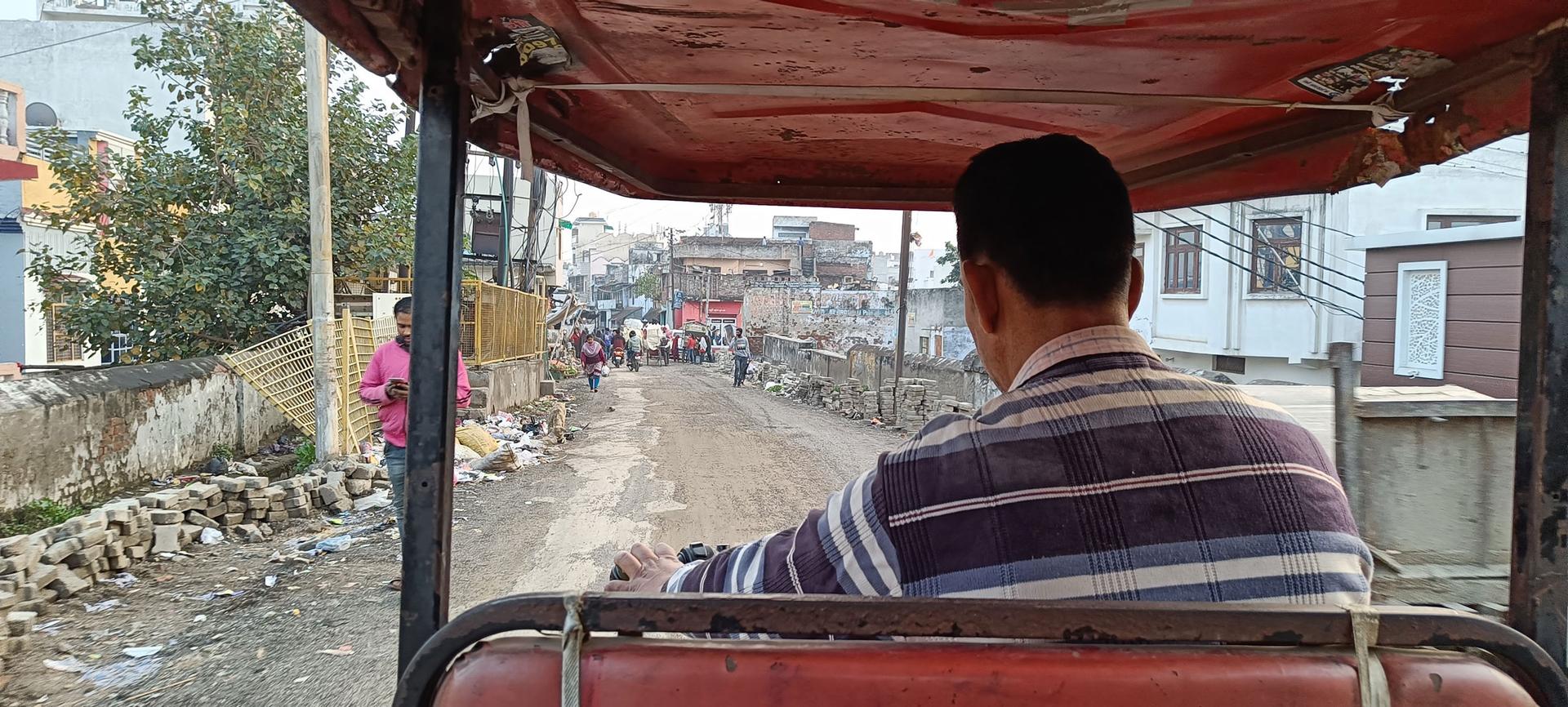
In 2019, five Muslim men in the neighborhood were fatally shot when police fired live rounds during an anti-government protest.
Siddiqui said the community is living in fear.
Across the street from Siddiqui’s office, kids recite their evening lesson at a madrassa. Mohammad Arshad, their teacher, said he feels sad when he hears the BJP’s anti-Muslim rhetoric.
“When India was divided in 1947 by the British, my family chose India over Pakistan, an Islamic nation. … This is our country, too.”
“When India was divided in 1947 by the British, my family chose India over Pakistan, an Islamic nation,” he said. “This is our country, too.”
Voting has begun in Uttar Pradesh and will be held in seven phases through early March, with ballots scheduled to be counted on March 10.
